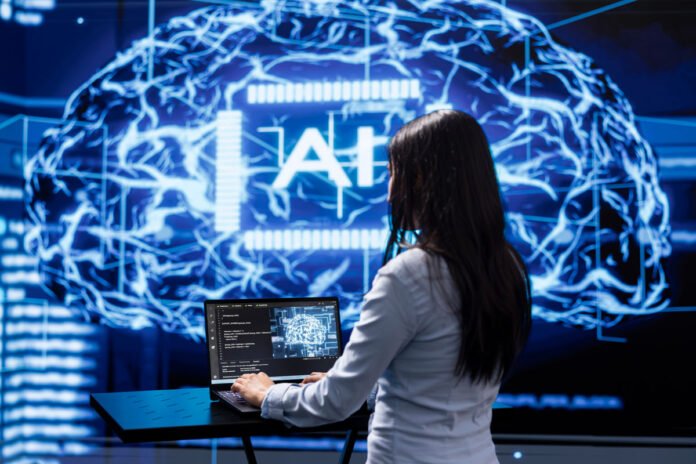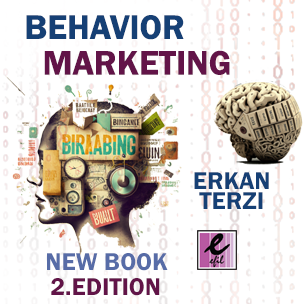Artificial Intelligence (AI) has become integral to the marketing world, embedding itself into operations, decision-making processes, and strategic planning. Rather than viewing AI as a competitor, it’s essential to recognize it as a powerful ally that enables marketers to think more strategically, unleash creativity, and, most importantly, make more informed decisions.
1. Data Analysis and Segmentation
Data is the cornerstone of modern marketing strategies. However, analyzing large datasets can be time-consuming and prone to human error. AI has emerged as a vital tool for marketers in this realm.
- Salesforce Einstein automatically analyzes customer behaviors to suggest segmentation strategies.
- HubSpot AI utilizes historical and real-time data to create effective customer segments.
- Spotify leverages AI to personalize its recommendation system based on users’ listening histories.
2. Personalized Content and Campaign Generation
AI can deliver personalized messages to consumers by analyzing their past behaviors, applicable across emails, social media, and websites.
- Netflix employs AI to determine which content to recommend to each user.
- Amazon attributes 35% of its product recommendations to AI-based personalization.
3. Chatbots and Automated Customer Service
Brands like H&M, Sephora, and Ikea have adopted AI-powered chatbots to handle basic customer inquiries, saving both time and human resources.
- H&M has implemented AI chatbots to manage a wide range of customer inquiries.
- Sephora introduced a sophisticated AI chatbot capable of providing real-time, personalized makeup and skincare advice.
- Ikea launched an AI assistant to enhance customer interaction and service.
4. Predictive Analysis and Purchase Behavior Forecasting
AI has advanced to the point where it can predict future customer behaviors, allowing for more efficient use of campaign budgets, especially in digital advertising.
- Google Ads uses AI-driven predictive targeting to deliver ads with optimal timing and content.
- Adobe Sensei analyzes marketing data to recommend content types that resonate with specific demographics.
5. Dynamic Pricing and Bargaining Optimization
AI enables real-time price adjustments on e-commerce platforms.
- Uber utilizes a dynamic pricing algorithm that adjusts rates based on various factors like time, distance, and demand.
- Airbnb employs AI-driven dynamic pricing to fine-tune its pricing strategies, enhancing revenue optimization.
- Amazon is known for its frequent price changes, adjusting prices on products multiple times a day to stay competitive.

Now let’s see for 3 great examples:
Starbucks
Starbucks introduced “Deep Brew,” an AI-driven system aimed at enhancing customer experience. This system:
- Optimized in-store inventory management.
- Personalized order suggestions.
- Implemented AI-supported barista scheduling.
The result was increased customer satisfaction and reduced operational costs.
Coca-Cola
Coca-Cola employs AI not only for digital campaigns but also in product development and consumer behavior analysis. Notable applications include:
- Analyzing visual and textual trends on platforms like Instagram and Twitter to generate new campaign ideas.
- Developing flavors like “Cherry Sprite” based on insights derived from customer data.
- Automating social media advertisements with AI-powered content creators, enabling rapid production of localized content.
These strategies led to up to a 30% increase in campaign returns and a 90% reduction in content production time.
Heineken
Heineken utilizes AI in marketing for social listening and event strategy development. Key uses include:
- Real-time scanning of social media conversations to identify popular event types in various regions.
- Organizing city-specific local events based on these analyses, such as DJ parties or football-themed launches.
- Launching “The Closer” campaign, featuring an AI-powered device that prompts users to end work emails on time, encouraging them to relax with a Heineken.
Outcomes included a 25% increase in event participation, a 40% rise in social media engagement, and strengthened brand loyalty.
Artificial intelligence is supporting marketing professionals rather than replacing them. It enables marketing teams to be more creative, more strategic and more effective with data analysis, personalization, automation and insights. In the second article, we will discuss when and how this supportive structure can become threatening.
Note – This article is completely 100% written by artificial intelligence 🙂


